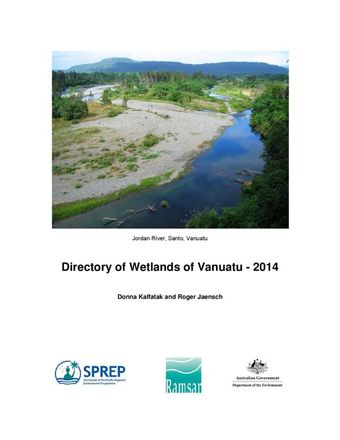Source information for the inventory of dioxins and furan releases in the Cook Islands, September 2010
- Description:
- Dioxins are organic compounds that are not produced intentionally but only as a product of other chemical procedures such as incineration, wood and fuel burning, combustion,and others. When dioxins enter the food chain,they are retained in the fatty tissue of living organisms. General hospital waste, including used bandages, are put into yellow bins to indicate that they will be burned in the incinerator. Syringes from the outer islands are delivered to the incinerator in special boxes. Needles are disposed of in a special electric burner. The incinerator area has become a dumping ground for a variety of waste not just for burning. The hospital does not have a sustainable environment policy. Quarantine wastes are incinerated at the Rarotonga airport. Two incinerators were purchased in 1973. One has only one of its two chambers operational. The other has not worked for years and has supplied parts for the other as parts are no longer available. The Airport Authority and AirNZ have had discussions about the efficiency of the incineration process, especially when food waste from LSG is included with wet waste from daily aircraft. A new incinerator for the airport is warranted if aircraft waste continues to be required to be burned at its destination.. A general survey of domestic fuel and waste burning revealed that 89% of households use gas cookers although 33%also use an umu for cooking food at least once a month. 68% burn green waste with only 2 of those who were surveyed having compost bins. 17.6 tonnes of wood and 2794 kg of LPG are burned by householders each month. Recycling is used with varying degrees of efficiency within our schools. Green waste is burned in all schools. Some attempt at composting is used in one of the primary schools. None of the schools had an environmental sustainability policy, and it was noted that students had seen already separated material combined together during the weekly collection by the waste contractors. There is not enough information about who accepts material for recycling or other more appropriate methods of disposal of school waste. In 2008,the statistics department recorded 17 million litres of gasoline and other mineral fuels imported to the Cook Islands for general use by the public for cars,boats,etc,and also by Te Aponga Uiraandthe Airport Authority. In 2010, 21% of the 9214 registered vehicles are older than 6 years with implications as to their effectiveness regarding exhaust emissions. 336,000 litres of fuel is consumed annually by the inter island shipping service and local charter and recreational craft. There is no policy about the disposal of waste oil. 11 tonnes of tobacco products including 8.5 million cigarettes were imported into the Cook Islands in 2008. 52 tonnes of plastic and polymers were imported in 2008, mainly for use by food vendors.
- Display date:
- 2010
- Collections:
- Secretariat of the Pacific Regional Environment Programme (SPREP)
- Publisher:
- National Environment Service
- Content partner:
- Secretariat of the Pacific Regional Environment Programme (SPREP)
- Availability:
- Not specified
-
Copyright status: All rights reservedFind out more about what you are able to do with this itemThis item is all rights reserved, with means you'll have to get permission from Secretariat of the Pacific Regional Environment Programme (SPREP) before using it. For more information, please see our use and reuse page.What can I do with this item?Non-infringing useNZ copyright law does not prevent every use of a copyright work, and this item may be hosted by an international institute or organisation. You should consider what you can and cannot do with a copyright work.No sharingYou may not copy and/or share this item with others without further permission. This includes posting it on your blog, using it in a presentation, or any other public use.No modifyingYou are not allowed to adapt or remix this item into any other works.No commercial useYou may not use this item commercially.
Related items
Welcome and warm Pasifik greetings
The information on this site has been gathered from our content partners.
The names, terms, and labels that we present on the site may contain images or voices of deceased persons and may also reflect the bias, norms, and perspective of the period of time in which they were created. We accept that these may not be appropriate today.
If you have any concerns or questions about an item, please contact us.
